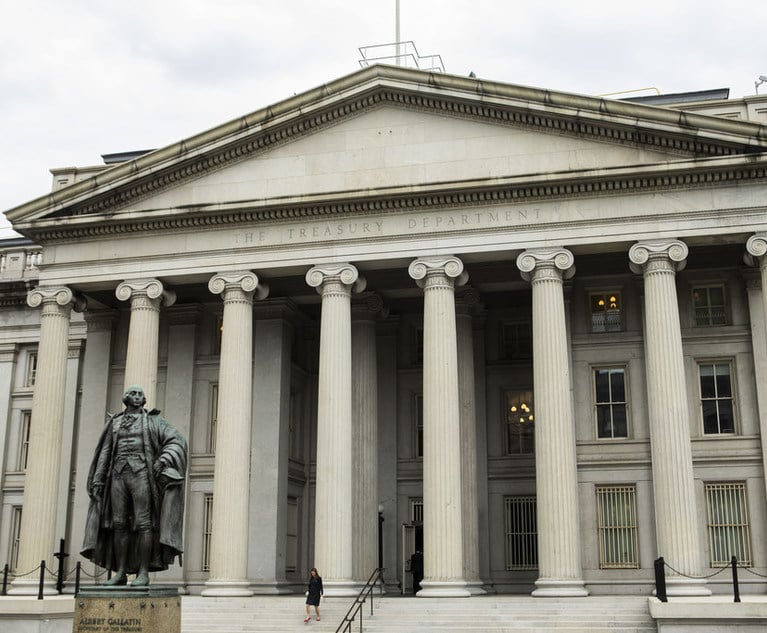Google, FTC reach settlement
Google Inc. kicked off the New Year with a major legal victory.
January 04, 2013 at 05:01 AM
5 minute read
The original version of this story was published on Law.com
Google Inc. kicked off the New Year with a major legal victory.
Yesterday the Federal Trade Commission (FTC) announced that it has ended its two-year antitrust investigation into Google, finding that the Internet company didn't manipulate its web search results to favor its own products and services and thus hurt its rivals.
“The conclusion is clear: Google's services are good for users and good for competition,” David Drummond, Google's chief lawyer, wrote in a blog post. “We're pleased that the FTC and the other authorities that have looked at Google's business practices … have concluded that we should be free to combine direct answers with Web results.”
The FTC brought no major charges against Google, but as part of the settlement, Google promised to make voluntary changes to its search practices. The company will give online advertisers more flexibility to manage ad campaigns on rival sites. Additionally, it agreed to grant fair and reasonable licenses to mobile-device competitors whose products use wireless technologies covered by its patents.
Not surprisingly, Google's rivals are disappointed with the outcome of the investigation. In an email to Thomson Reuters, a Yelp spokesman wrote that “the closure of the commission's investigation into search bias by Google without action … represents a missed opportunity to protect innovation in the Internet economy.”
Meanwhile, European antitrust officials are wrapping up their investigation of Google, and experts speculate that the company could face stricter reprimanding.
Read the Wall Street Journal and Bloomberg Businessweek for more about the Google-FTC settlement.
For more recent InsideCounsel stories about antitrust, read:
DOJ antitrust division collects record-breaking fines in 2012
Regulators sue NY tour buses for alleged monopoly
Retailers appeal $7.2 billion Visa/MasterCard settlement
Most-favored-nation clauses attract antitrust scrutiny
Yesterday the Federal Trade Commission (FTC) announced that it has ended its two-year antitrust investigation into
“The conclusion is clear:
The FTC brought no major charges against
Not surprisingly,
Meanwhile, European antitrust officials are wrapping up their investigation of
Read the Wall Street Journal and Bloomberg Businessweek for more about the Google-FTC settlement.
For more recent InsideCounsel stories about antitrust, read:
DOJ antitrust division collects record-breaking fines in 2012
Regulators sue NY tour buses for alleged monopoly
This content has been archived. It is available through our partners, LexisNexis® and Bloomberg Law.
To view this content, please continue to their sites.
Not a Lexis Subscriber?
Subscribe Now
Not a Bloomberg Law Subscriber?
Subscribe Now
NOT FOR REPRINT
© 2025 ALM Global, LLC, All Rights Reserved. Request academic re-use from www.copyright.com. All other uses, submit a request to [email protected]. For more information visit Asset & Logo Licensing.
You Might Like
View All
Internal Whistleblowing Surged Globally in 2024, So Why Were US Numbers Flat?
6 minute read
FTC Finalizes Child Online Privacy Rule Updates, But Ferguson Eyes Further Changes

Supreme Court Reinstates Corporate Disclosure Law Pending Challenge
Trending Stories
- 1New York-Based Skadden Team Joins White & Case Group in Mexico City for Citigroup Demerger
- 2No Two Wildfires Alike: Lawyers Take Different Legal Strategies in California
- 3Poop-Themed Dog Toy OK as Parody, but Still Tarnished Jack Daniel’s Brand, Court Says
- 4Meet the New President of NY's Association of Trial Court Jurists
- 5Lawyers' Phones Are Ringing: What Should Employers Do If ICE Raids Their Business?
Who Got The Work
J. Brugh Lower of Gibbons has entered an appearance for industrial equipment supplier Devco Corporation in a pending trademark infringement lawsuit. The suit, accusing the defendant of selling knock-off Graco products, was filed Dec. 18 in New Jersey District Court by Rivkin Radler on behalf of Graco Inc. and Graco Minnesota. The case, assigned to U.S. District Judge Zahid N. Quraishi, is 3:24-cv-11294, Graco Inc. et al v. Devco Corporation.
Who Got The Work
Rebecca Maller-Stein and Kent A. Yalowitz of Arnold & Porter Kaye Scholer have entered their appearances for Hanaco Venture Capital and its executives, Lior Prosor and David Frankel, in a pending securities lawsuit. The action, filed on Dec. 24 in New York Southern District Court by Zell, Aron & Co. on behalf of Goldeneye Advisors, accuses the defendants of negligently and fraudulently managing the plaintiff's $1 million investment. The case, assigned to U.S. District Judge Vernon S. Broderick, is 1:24-cv-09918, Goldeneye Advisors, LLC v. Hanaco Venture Capital, Ltd. et al.
Who Got The Work
Attorneys from A&O Shearman has stepped in as defense counsel for Toronto-Dominion Bank and other defendants in a pending securities class action. The suit, filed Dec. 11 in New York Southern District Court by Bleichmar Fonti & Auld, accuses the defendants of concealing the bank's 'pervasive' deficiencies in regards to its compliance with the Bank Secrecy Act and the quality of its anti-money laundering controls. The case, assigned to U.S. District Judge Arun Subramanian, is 1:24-cv-09445, Gonzalez v. The Toronto-Dominion Bank et al.
Who Got The Work
Crown Castle International, a Pennsylvania company providing shared communications infrastructure, has turned to Luke D. Wolf of Gordon Rees Scully Mansukhani to fend off a pending breach-of-contract lawsuit. The court action, filed Nov. 25 in Michigan Eastern District Court by Hooper Hathaway PC on behalf of The Town Residences LLC, accuses Crown Castle of failing to transfer approximately $30,000 in utility payments from T-Mobile in breach of a roof-top lease and assignment agreement. The case, assigned to U.S. District Judge Susan K. Declercq, is 2:24-cv-13131, The Town Residences LLC v. T-Mobile US, Inc. et al.
Who Got The Work
Wilfred P. Coronato and Daniel M. Schwartz of McCarter & English have stepped in as defense counsel to Electrolux Home Products Inc. in a pending product liability lawsuit. The court action, filed Nov. 26 in New York Eastern District Court by Poulos Lopiccolo PC and Nagel Rice LLP on behalf of David Stern, alleges that the defendant's refrigerators’ drawers and shelving repeatedly break and fall apart within months after purchase. The case, assigned to U.S. District Judge Joan M. Azrack, is 2:24-cv-08204, Stern v. Electrolux Home Products, Inc.
Featured Firms
Law Offices of Gary Martin Hays & Associates, P.C.
(470) 294-1674
Law Offices of Mark E. Salomone
(857) 444-6468
Smith & Hassler
(713) 739-1250







